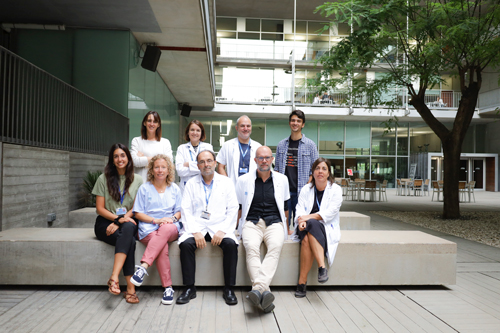
30/09/2022 - General information
An international collaborative study involving the Hospital del Mar Medical Research Institute and the Hospital del Mar has analyzed data from over 200,000 stroke patients and more than two million control individuals from five different ancestries. This study has associated 89 genes, of which 69 were previously unknown, with stroke and its subtypes. The research provides crucial insights to guide future biological investigations into the processes leading to this condition. Additionally, it reveals that some of these genes could potentially serve as targets for drugs to prevent or treat this disease. It also offers genetic prediction tools, improved and validated for the first time in non-European populations, to guide the development of new drugs.
Stroke is the second leading cause of death worldwide, accounting for approximately 12% of all deaths and a significant factor in the loss of years of life or living with disabilities. Its incidence is particularly high in low and middle-income countries, where 70% of stroke-related deaths are reported. Therefore, adopting a global perspective is crucial in efforts to improve stroke prevention and treatment.

The results of the largest genomic study on stroke to date have been published in the journal Nature. The research is based on DNA samples from over 2.5 million participants, including 200,000 who had suffered a stroke. The participants came from Europe, East Asia, Africa, South Asia, and Latin American ancestry (with one-third being non-European patients). Data were collected from various hospital population databases, biobanks, and five clinical trials. The Hospital del Mar Medical Research Institute participated with more than 2,000 individuals.
The study was led by members of the GIGASTROKE consortium, which includes various international consortia and networks, such as ISCG and CHARGE, and researchers from about twenty countries. The Hospital del Mar Medical Research Institute was one of the three Catalan centers involved in the study.
The researchers conducted an initial genetic study with 1.6 million individuals, of whom 110,182 had suffered a stroke. They identified 89 genes, 61 of which were new, associated with stroke. These genes were further examined in 1.1 million people, many samples from biobanks, and among them, 89,081 had suffered a stroke, providing additional evidence for most of the associations identified in the first analysis.
Dr. Jordi Jiménez Conde, a researcher at the Hospital del Mar Medical Research Institute and an attending physician in the Neurology Service who participated in the study, emphasized that "This project is the largest ever undertaken on the genetics of stroke risk, with 2.5 million participants, including about 200,000 stroke cases. It is the result of the combined efforts of the most relevant consortia worldwide dedicated to this topic, and, in addition, it provides new information on different aspects of stroke risk." He further explained that “the study was conducted not only with populations of European origin but also with individuals of Asian, African, and Hispanic ancestry, analyzing the cross-risk of stroke across different populations. Moreover, the study creates a genetic risk score for stroke with high predictive ability and identifies several therapeutic targets that could potentially reduce the risk of suffering a stroke through specific medications”.
Reference article:
Stroke genetics informs drug discovery and risk prediction across ancestries (2022). Aniket Mishra, Rainer Malik, Tsuyoshi Hachiya, Tuuli Jürgenson, Shinichi Namba, Daniel C. Posner, et al. Nature. doi: 10.1038/s41586-022-05165-3.
Servei de Comunicació:
Marta Calsina(ELIMINAR)
Tel:
(+34) 93 316 06 80
Doctor Aiguader, 88
08226 Barcelona
© Institut Hospital del Mar
d'Investigacions MèdiquesLegal Notice and Privacy Policy | Cookie Policy | Site Index | Accessibility | Find Us | Contact